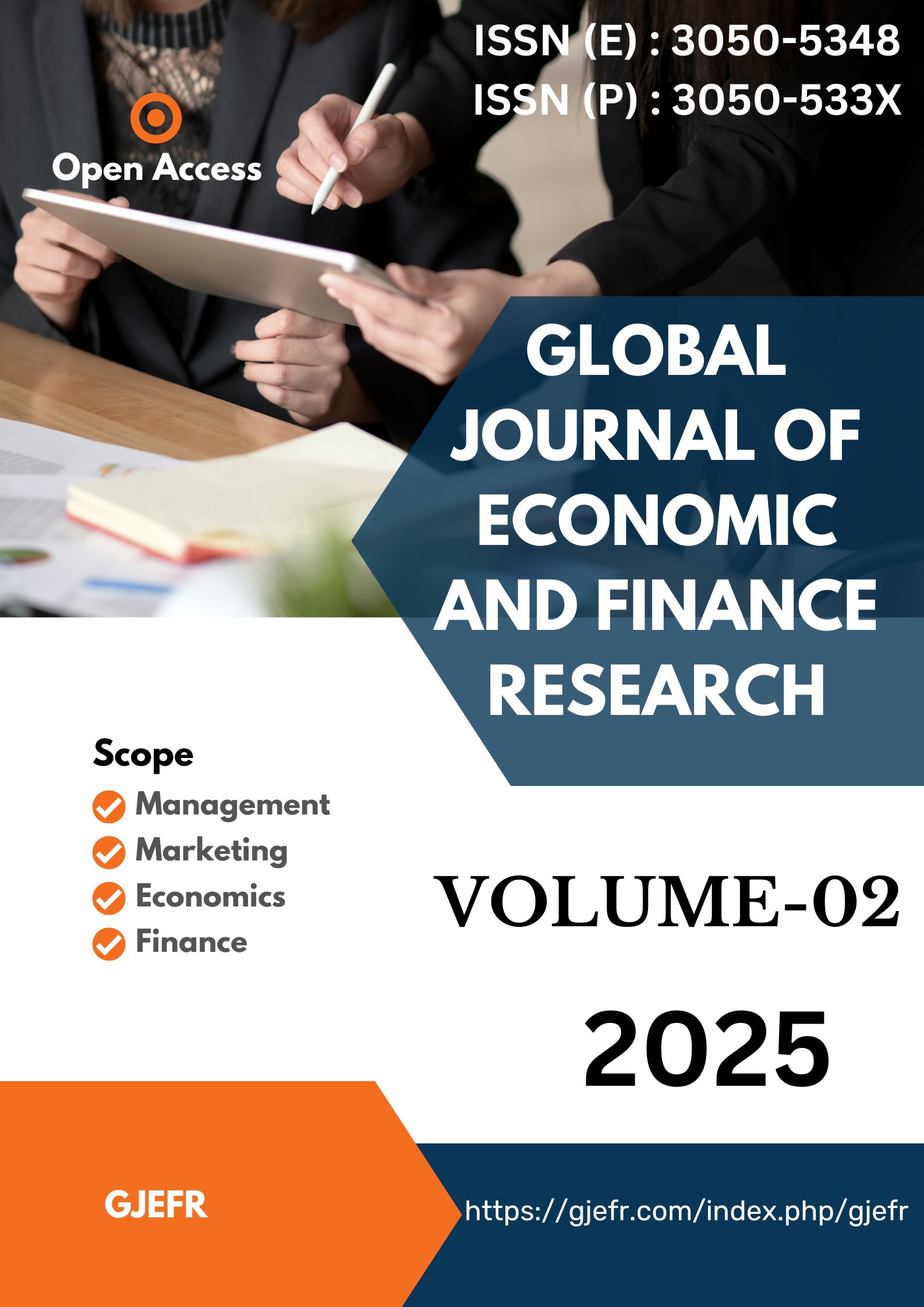Boardroom AI: The Governance of AI-Assisted Corporate Decision-Making
DOI:
https://doi.org/10.55677/GJEFR/08-2025-Vol02E4Keywords:
AI Governance, Corporate Decision-Making, Boardroom AI, Ethical AI Compliance, AI Risk ManagementAbstract
Artificial Intelligence (AI) is no longer a distant dream but a drastic change to the ordinary world of companies ascending in the corporate world. The governance of the boardroom is the technology that has been overshadowed, and now it is the topics of conversation in the boardroom. The organizations of the AI for the decision-making process of the boardroom bring numerous advantages like better efficiency, predictive analytics, and risk management in the conduct of the decision making process. On the one hand, it creates some governance challenges such as transparency, accountability, ethical compliance, and regulatory alignment but on the other hand, it automates boardroom decision-making, and a higher level of profitability is thus achievable. This study is an extensive discussion of decision making in the corporate world helped by AI by addressing its advantages, risks, and the changes in the boards' responsibilities, which they face when managing AI-related strategies. For better understanding of this new field, we provide research data, practical application examples, and the governance models that can be used by the organizations to guarantee the ethical AI implementation. We also deliberate on the requirements of human supervision, legal compliance, and moral considerations in AI governance. Moreover, it brings forth a systematic approach to the control of AI's dangers and the maximization of potential within the corporate governance framework.
References
1. Agrawal, A., Gans, J., & Goldfarb, A. (2018). Prediction Machines: The Simple Economics of Artificial Intelligence. Harvard Business Press.
2. Brynjolfsson, E., & McAfee, A. (2017). Machine, Platform, Crowd: Harnessing Our Digital Future. W.W. Norton & Company.
3. Bughin, J., Hazan, E., & Ramaswamy, S. (2023). The Economic Potential of Generative AI. McKinsey Global Institute.
4. Davenport, T. H., & Ronanki, R. (2018). "Artificial Intelligence for the Real World." Harvard Business Review, 96(1), 108-116.
5. Deloitte. (2024). State of Generative AI in the Enterprise Survey. Deloitte Insights.
6. Kaplan, A., & Haenlein, M. (2021). "Siri, Siri, in My Hand: Who’s the Fairest in the Land? On the Interpretations, Illustrations, and Implications of Artificial Intelligence." Business Horizons, 64(1), 15-25.
7. Kolbjørnsrud, V., Amico, R., & Thomas, R. J. (2021). "How Artificial Intelligence Will Redefine Management." Harvard Business Review, 99(2), 1-10.
8. Mehrabi, N., Morstatter, F., Saxena, N., Lerman, K., & Galstyan, A. (2021). "A Survey on Bias and Fairness in Machine Learning." ACM Computing Surveys, 54(6), 1-35.
9. Obermeyer, Z., Powers, B., Vogeli, C., & Mullainathan, S. (2019). "Dissecting Racial Bias in an Algorithm Used to Manage the Health of Populations." Science, 366(6464), 447-453.
10. Salehi, Farhang. "The role of artificial intelligence in revolutionizing the agriculture industry in Canada." Asian J. Res. Rev. Agric 6.1 (2024): 70-78.
11. Wachter, S., Mittelstadt, B., & Floridi, L. (2017). "Why a Right to Explanation of Automated Decision-Making Does Not Exist in the General Data Protection Regulation." International Data Privacy Law, 7(2), 76-99.
12. Zetzsche, D. A., Buckley, R. P., & Arner, D. W. (2020). "The Evolution of Fintech: A New Post-Crisis Paradigm?" University of Pennsylvania Journal of International Law, 41(4), 1-45.
Downloads
Published
Issue
Section
License
Copyright (c) 2025 Global Journal of Economic and Finance Research

This work is licensed under a Creative Commons Attribution 4.0 International License.

